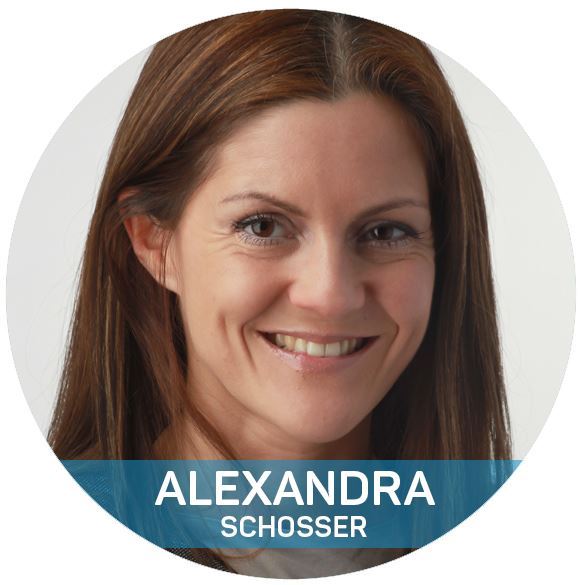- Home
- About
- ISST Board Elections
- 2020 Elections
- Alexandra Schosser Personal Statement 2020

PERSONAL STATEMENTI have already been serving as Research and Scientific Coordinator from 2018 to 2020, and would be pleased to continue the relating duties for another election period. Before, I had strongly been involved in the organisation of the INSPIRE 2016 conference in Vienna as ISST Vice President from 2015 to 2016. After finishing my trainings as cognitive behavioural psychotherapist, and as medical specialist in psychiatry and psychotherapy, I continued to have a strong focus on schema therapy, being trainer and supervisor for individual schema therapy and couples. Besides, since 2014, I am training director of the Schema Therapy Institute Vienna. My research career started in 2001 at the Department of Psychiatry and Psychotherapy of the Medical University Vienna, initially with a major focus on psychiatric genetics and later on being principal investigator of several grant funded research projects. I was awarded my Viena Docendi (“Habilitation”) in 2012. Since 2013, I am Medical Director of an ambulant psychiatric rehabilitation clinics in Vienna with a major focus on cognitive behavioural psychotherapy and schema therapy, also having a strong research focus on psychotherapy research. We currently investigate, among others, the effectiveness of schema therapy as compared to cognitive behavioural therapy, as well as schemas and modes in chronic axis I and II disorders, mainly chronic depression. Together with my research fellows, I was awarded the “Young Investigator Award 2018 for Applied Relevance of Research” at the INSPIRE 2018 conference. As Research and Scientific Coordinator from 2018 to 2020, I was strongly involved in planning the INSPIRE 2020 conference, mainly deciding on and assigning scientific presentations. The conference was originally planned in Copenhagen, however due to the interfering pandemia, we had to postpone the on-site conference and presented a virtual conference instead. I served on that online conference committee and, later on, was pleased to moderate a number of live sessions, in this means being able to connect to ISST colleagues all over the world in the context of the virtual conference. After the ISST reached an important agreement with Dr. Jeffrey Young during the past Executive Board period to be delegated the management and supervision of the Schema Therapy Diagnostic Instruments translations (the copyright in any language will certainly be reserved to Dr. Jeffrey Young and his co-authors), I have initiated the collection of the translated versions. This is expected to facilitate the diagnostic and research work for specialists in many countries. From 2018 to 2020, I further thoroughly updated the established collection of schema therapy articles since 1992, and kept supporting an extensive continuous exchange of scientific ideas and projects among ISST members. Together with the Executive Board and advised by Arnoud Arntz, I also established a Research and Development Fund, aiming to facilitate and (partially) fund clearly defined research proposals on schema therapy in countries with limited financial resources (low income countries or developing countries respectively). The criteria and guidelines have been finished, and, moving forward, the budget will be set during the following election period. In short, among the priorities for the next ISST Research and Scientific Coordinator I see
Due to my commitment to the ISST, and primary due to my passion about both schema therapy and research, I would be delighted to continue my work as Research and Scientific Coordinator and, to be able to do this, I ask for your vote. |